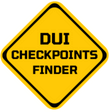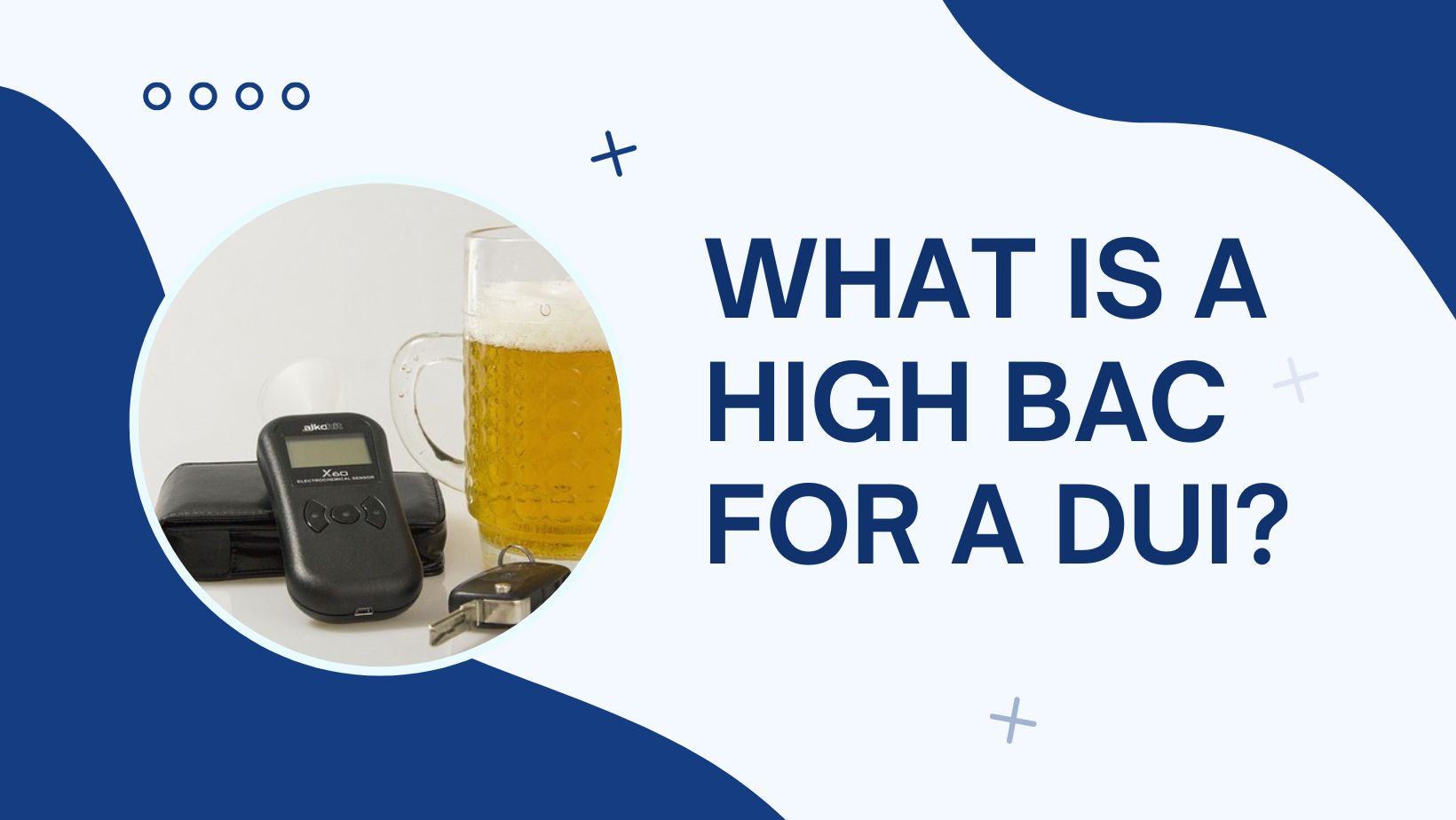The concept of Blood Alcohol Concentration (BAC), though central to the regulations governing Driving Under the Influence (DUI) offenses, remains obscure for many. This article aims to elucidate the intricacies of BAC, illustrating its significance in legal scenarios and highlighting the importance of responsible driving.
What is Blood Alcohol Concentration (BAC)?
Blood Alcohol Concentration (BAC) refers to the amount of alcohol present in a person’s bloodstream. It is typically measured in grams of alcohol per 100 milliliters of blood, often expressed as a percentage. For instance, a BAC of 0.10% signifies that an individual’s blood supply contains one part alcohol for every 1,000 parts blood.
How is BAC Measured?
A person’s BAC can be measured through breath, blood, or urine tests, with breath tests being the most commonly used due to their convenience. Breathalyzer devices are used by law enforcement officers during roadside checks to quickly gauge a driver’s level of intoxication. These devices measure the amount of alcohol present in one’s breath and use a formula to estimate the BAC.
Factors that Can Affect BAC
Understanding the factors that influence Blood Alcohol Concentration (BAC) can help us comprehend why people react differently to alcohol and how these variations can impact their legal responsibilities when driving.
Alcohol Consumption Rate
One of the most obvious factors affecting BAC is the rate of alcohol consumption. Drinking large amounts of alcohol in a short period, often referred to as ‘binge drinking’, can rapidly increase BAC to dangerous levels. The faster the intake, the quicker the rise in BAC as the body’s metabolic rate cannot keep pace with the rapid influx of alcohol.
Body Weight and Body Fat
People with larger body masses usually have lower BACs after consuming the same amount of alcohol as those with smaller body masses. This is because the alcohol has a larger volume to distribute within, leading to a lower concentration. Moreover, body fat percentage plays a role too. Fat does not absorb alcohol well, so people with higher body fat percentages might have higher BACs than those with more muscle mass.
Gender
On average, women generally reach higher BACs faster than men. This is because women typically have a higher body fat percentage and lower water content than men. Furthermore, hormonal changes during the menstrual cycle can affect how women metabolize alcohol, leading to fluctuating BAC levels.
Food Intake
Food in the stomach can moderate the rate at which alcohol is absorbed into the bloodstream. Consuming alcohol on an empty stomach leads to rapid absorption and a swift rise in BAC. In contrast, if you eat before or while drinking, the alcohol is absorbed more slowly, leading to a lower peak BAC.
Metabolic Rate
Everyone has a unique metabolic rate, i.e., the speed at which their body processes substances, including alcohol. While the average metabolic rate can burn off approximately one standard drink per hour, individual variations can lead to differences in BAC.
Type and Strength of Alcohol
The type and strength of the alcoholic beverage consumed can significantly affect BAC. Strong spirits can raise BAC more quickly than lower-alcohol-content beverages like beer or wine. This is because the amount of alcohol consumed is greater in stronger drinks for the same volume.
Use of Drugs or Medication
The simultaneous use of alcohol and drugs, including prescription and over-the-counter medication, can dramatically affect BAC and the body’s response to alcohol. Some medications can slow the metabolism of alcohol, leading to a higher BAC and prolonged effects of intoxication.
Understanding BAC and Impairment
While BAC levels can vary based on the factors mentioned above, even small amounts of alcohol can cause significant impairment. Below is a general breakdown of BAC levels and their associated effects:
- BAC 0.02%-0.03%: Mild euphoria and slight impairment in judgment and coordination.
- BAC 0.05%-0.06%: Exaggerated behavior, loss of small-muscle control, impaired judgment, and lowered alertness.
- BAC 0.08%-0.10%: Poor muscle coordination, slowed reflexes, and impaired reasoning and memory. In many jurisdictions, a BAC of 0.08% is the legal threshold for DUI.
- BAC 0.15%-0.20%: Major loss of balance, potential blackouts, and significantly impaired motor control. Risk of injury to oneself and others is extremely high.
- BAC 0.30%-0.40%: Loss of consciousness, and potential life-threatening alcohol poisoning. The risk of fatal respiratory depression is high.
- BAC 0.40% and above: Severe risk of death due to respiratory arrest or acute alcohol poisoning.
What is a High BAC for a DUI?
In the United States, for the vast majority of adults aged 21 and over, a Blood Alcohol Content (BAC) level of 0.08% or higher is considered legally impaired and can lead to a DUI (Driving Under the Influence) charge. However, what is considered a “High BAC” can be somewhat variable, as it’s often defined differently by each state law, and may even vary depending on the context.
For instance, in some states, higher penalties and additional charges may apply for individuals arrested with a BAC of 0.15% or more. This is often categorized as a “High BAC” DUI or an “Aggravated DUI.” The reason for this is that a BAC of this level is almost twice the legal limit and increases the risk of severe accidents and fatalities.
- A BAC of 0.08% or higher is legally considered impaired in the United States.
- A “High BAC” often refers to a BAC level significantly above the legal limit, such as 0.15% or more.
- The definition of a “High BAC” may vary by state and context.
- An individual arrested with a “High BAC” may face additional penalties or charges, often referred to as an “Aggravated DUI.”
The Legal Perspective: BAC and DUI Laws
In the United States, a person is considered legally impaired to drive with a BAC of 0.08% or higher in all states. This law applies to drivers aged 21 and above. For those under 21, zero-tolerance laws make it illegal to drive with any detectable amount of alcohol. Commercial drivers typically face stricter regulations, with a BAC limit of 0.04%.
DUI Penalties and BAC
While penalties for DUI offenses can vary by state and case, they generally increase with higher BAC levels. Penalties may include fines, suspension of driving privileges, mandatory alcohol education or treatment, installation of an ignition interlock device, and even jail time. Moreover, multiple offenses can lead to more severe consequences.
- California: A high BAC DUI (0.15% or higher) can result in enhanced penalties, such as a mandatory 9-month DUI school, larger fines, and potentially longer jail sentences.
- Florida: An individual with a BAC of 0.15% or higher may face fines up to $2,000 for a first offense, and mandatory installation of an ignition interlock device for up to six months.
- New York: In New York, a BAC of 0.18% or higher is classified as “Aggravated DWI.” Penalties may include a fine of $1,000 to $2,500, up to a year in jail, and a license revocation for at least a year.
- Texas: In Texas, a high BAC (0.15% or higher) is considered a Class A misdemeanor, which could result in fines up to $4,000, up to a year in jail, or both. Additionally, there may be a license suspension for up to two years.
- Illinois: In Illinois, a BAC of 0.16% or higher can result in mandatory minimum fines and community service hours.
Conclusion
Understanding Blood Alcohol Concentration and its impact on driving abilities is crucial for maintaining road safety. While alcohol can affect individuals differently, any amount can impair driving skills and judgment. Hence, the best course of action remains to avoid drinking and driving altogether.
By demystifying BAC, we hope to contribute to better decision-making, improved road safety, and a lower incidence of DUI offenses. Legal implications aside, understanding BAC is ultimately a matter of personal and public safety. After all, behind every DUI statistic is a life that could be irrevocably changed or even lost.
Remember, a DUI charge doesn’t just carry legal consequences; it can lead to personal and professional repercussions that last far beyond the conclusion of any legal proceedings. If you’re facing a DUI charge, consult a knowledgeable DUI attorney who can help navigate the complexities of the law and guide you through the process.
FAQs
1. What is BAC in the context of a DUI?
BAC stands for Blood Alcohol Content, which measures the amount of alcohol in a person’s blood. It’s commonly used in determining intoxication levels in DUI (Driving Under Influence) cases.
2. What constitutes a high BAC?
A high BAC typically refers to a blood alcohol concentration significantly above the legal limit. While the legal limit in most states is 0.08%, a BAC of 0.15% or higher is generally considered high.
3. What is the legal BAC limit for driving under the influence (DUI)?
In all 50 states in the USA, the legal BAC limit for driving is 0.08% for adults aged 21 and over. For commercial drivers, the limit is 0.04%, and for drivers under 21, any amount of alcohol can lead to a DUI charge.
4. How is BAC determined?
BAC is determined through a breath, blood, or urine test. Breath tests are the most commonly used method during traffic stops, but blood tests are the most accurate.
5. How can high BAC affect a DUI case?
High BAC can lead to more severe penalties in a DUI case, including higher fines, longer license suspensions, and potentially longer jail sentences. In some states, high BAC can elevate a misdemeanor DUI to a felony charge.
6. Can you refuse a BAC test?
Yes, you can refuse a BAC test, but refusal often comes with automatic penalties, such as license suspension, and can be used against you in court.
7. What is a Zero Tolerance law in relation to BAC and DUI?
Zero Tolerance laws apply to drivers under the age of 21, meaning any measurable amount of alcohol in their system can lead to a DUI charge, regardless of the standard 0.08% BAC limit.
8. What factors can influence a person’s BAC?
Several factors can influence BAC, including weight, gender, amount of alcohol consumed, rate of consumption, food intake, and metabolism rate.
9. Can medication affect BAC?
Yes, certain medications can enhance the effects of alcohol, leading to higher perceived impairment, but they do not directly influence the BAC.
10. Are BAC limits the same in all states?
While the 0.08% limit is standard across the United States, some states have stricter regulations, especially for repeat offenders or drivers under 21.
11. Can you lower your BAC level quickly?
The body metabolizes alcohol at a constant rate, and time is the only way to lower BAC. Drinking water, coffee, or taking a cold shower will not speed up this process.
12. What is an ignition interlock device in relation to BAC?
An ignition interlock device is a breathalyzer for an individual’s vehicle, requiring a breath sample that registers below a preset BAC level before the engine will start.
13. What is ‘implied consent’ in relation to BAC testing?
Implied consent laws mean that by driving a vehicle, you agree to submit to chemical tests of your blood, breath, or urine to determine alcohol or drug content if asked by a law enforcement officer.
14. What happens if you are arrested with a high BAC?
If you are arrested with a high BAC, you are likely to face severe consequences, such as higher fines, mandatory alcohol education programs, potential jail time, and a longer suspension of your driver’s license.
15. Can BAC results be contested in court?
Yes, BAC results can be contested in court. A DUI attorney may challenge the accuracy of the BAC test or the procedures followed during testing.
16. What is a BAC calculator?
A BAC calculator is a tool that estimates your blood alcohol content based on your weight, the number and type of drinks consumed, and the time over which you’ve been drinking.
17. How reliable are BAC calculators?
BAC calculators should be used as a guide only, as they cannot account for all variables such as metabolism, overall health, or the effects of medication.
18. Can you be charged with a DUI even if your BAC is below 0.08%?
Yes, you can be charged with a DUI if your BAC is below 0.08% if your driving is impaired and the impairment can be linked to alcohol or drug consumption.
19. What are the penalties for a high BAC DUI for a first-time offender?
Penalties can include fines, license suspension, DUI education programs, probation, and possibly jail time. The severity of penalties often increases with the BAC level.
20. How does a DUI affect your driving record?
A DUI conviction remains on your driving record for years and can lead to higher insurance premiums, difficulty obtaining certain jobs, and other long-term consequences.
21. What is a DUI checkpoint?
A DUI checkpoint is a location where law enforcement officers are stationed to check drivers for signs of intoxication and impairment.
22. Are DUI checkpoints legal in all states?
No, while DUI checkpoints are legal in many states, there are 12 states where they are not permitted.
23. What happens at a DUI checkpoint?
At a DUI checkpoint, officers will stop drivers at a specific location to check for signs of impairment. This may include a brief interview and potentially a BAC test.
24. What should you do if you’re stopped at a DUI checkpoint?
Stay calm, be polite to the officers, and follow their instructions. You have the right to refuse to answer incriminating questions and to refuse a BAC test, but refusing a test often has legal consequences.
25. Can you turn around to avoid a DUI checkpoint?
Yes, you can legally turn around to avoid a DUI checkpoint, as long as you do so safely and without violating any traffic laws. However, this action may draw attention from the police.
26. What is an ‘Aggravated DUI’?
An Aggravated DUI is a charge that is more serious than a standard DUI, usually because the driver’s BAC was significantly over the legal limit, there were minors in the vehicle, or because it’s a repeat offense.
27. What are ‘Field Sobriety Tests’ (FSTs)?
FSTs are tests conducted by police officers at a traffic stop to determine if a driver is impaired. They can include a Horizontal Gaze Nystagmus (HGN) test, walk-and-turn test, and one-leg-stand test.
28. Can field sobriety tests be refused?
Yes, you can refuse to take field sobriety tests. However, refusal may lead to arrest based on other evidence of impaired driving.
29. Are field sobriety tests accurate?
Field sobriety tests have been shown to be reasonably accurate in detecting impairment. However, they are not foolproof and can be affected by factors such as nervousness, physical disabilities, or uneven ground.
30. Should I hire a lawyer if I’m charged with a high BAC DUI?
Yes, if you’re charged with a DUI, especially a high BAC DUI, it’s advisable to consult with an experienced DUI attorney to understand your legal options and potential defenses.




